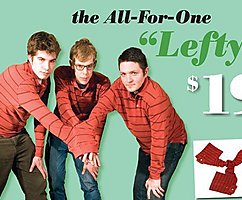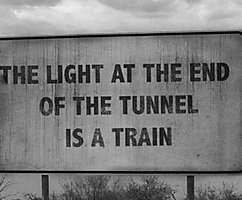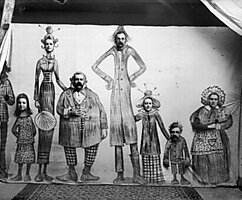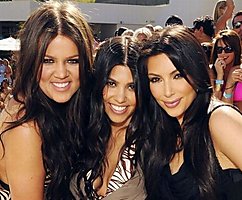Philosopher John Searle about how language constructs reality
 Bashny.Net
Bashny.Net
John Searle came to prominence in the 1960-70th years, thanks to his theory of speech acts, philosophy of mind and artificial intelligence. As a possible science of consciousness? What is the relationship of civilization and language? Why societal change and revolution? Than the power relations of animals differ from the power relations of people? In the lecture "Language and social ontology" John Searle gives a brief description of his theory of speech acts — what is the intentionality and ontological subjectivity and status functions.
One million nine hundred sixty four thousand two hundred seventy two
© Urs Fischer
Philosophy often begins with a paradox. So I'll start. The paradox is as follows: there is a whole class of facts in the world that are true, honest, objective, but they are facts only by human subjectivity, it becomes itself only when we consider them as such. Pieces of paper that I carry in my wallet are money because we think it's money. But at the same time, it is a fact — after all, when I pay them at the store, the seller is not thinking, "Can you believe their money, but you need someone". How does it work? This will be the lecture, but I want to start with separation, which seems to me the key difference between the two values of the opposition subjective-objective.
You have no idea how much bad philosophy is based on the inability to see the difference between epistemological and ontological sense of the distinction. For example, if I say that Rembrandt was born in 1606, is what is called objective reality, the epistemological objective. If I say that Rembrandt a better painter than Vermeer, it would be epistemologically subjective value statement. But this differentiation is based on a deeper division of forms of life. When hurt, tickled, or something itching — these sensations exist only in the presence of the subject, they are ontologically subjective. Mountains, molecules and tectonic plates exist, regardless of what people think about them — they are ontologically objective. Here is the main point of discussion: you can have epistemologically objective judgment about such area which is ontologically subjective.
Money, private property, nationality, universities, cocktail parties and summer vacations — all of these things are what they are because we decided so. When I began to study the brain, I talked to the neuroscientists: "You need to work quickly to solve the problem of consciousness!"The standard answer I received: "Well, in your understanding, consciousness is subjective, while science is objective. Therefore cannot be a science of consciousness". Yes, consciousness is ontologically subjective, but there is no reason why you can't be epistemologically objective science about the region, which is ontologically subjective. A very long time to tell this story, and now nobody says that we can't study consciousness because it's subjective and science is objective. A good example is the economy. Economists often forget this, but the scope of their studies is the human ontological subjectivity — money, exchange, market.
It was the first idea, now we need to move on. What makes these facts epistemological objective? Money, private property, nationality, universities, cocktail parties and summer vacations — all of these things are what they are because we decided so. But how can we be epistemologically objective knowledge about these ontologically subjective things, how does it work? This happens through the application of certain principles. The first principle is the distinction relevant to the observer and independent of the observer. All of the above things relate to the observer. They imply the complicity of the observer, is what I call collective intentionality. They exist only because we as a team recognize these things with money, private property, and so on.
What is collective intentionality? People and some animals have the ability to attribute things to specific functions. A function always refers to the observer. For example, we assign the function to the items which have a certain physical structure, like a piece of chalk that I keep. But man, unlike any other animal, as far as I know, is able to ascribe function to any object, not only on the basis of its physical structure, but also on the basis of the status of this object with the property of its collective recognition. I call this status functions. Here we return to the papers that lay in my pocket. Their property is not a physical or virtual structure, but they are collectively recognized status.
The status function is omnipresent. From all sides you are surrounded by an invisible system of status functions. You have the money in pocket or Bank account, your ownership of anything, driving license, marital status — all status functions. Thus, our first theoretical challenge is to understand how the ontology of status functions. As possible the existence of a class ontologically subjective, but epistemologically objective status of functions having a collective recognition. I thought I have the answer. I'll tell you, because I think it's good, but he, unfortunately, does not work, and you'll see why.
All status functions are the result of applying a simple principle. When I worked on the language, it seemed to me that there are two types of rules. There are regulations, such right-hand movement. But there are rules that do not just regulate behavior, but create the very possibility of the existence of this behavior. The most obvious example is the rules of the game. That is right-hand traffic rules regulate the activity, which exists independently of these rules, and the rules of chess do not exist separately from the activity itself.
In other words, there are not only regulations, but also constitutional. These rules have always had the same structure: X is Y in context C. for Example, such a position is considered to be the Shah, this form Shah refers to as checkmate. You satisfy certain conditions X and arrogate to themselves the status of the function Y. it seemed to Me that it's a great form to describe the structure of the entire human civilization. We gradually build a complex society, with money, governments, cocktail parties, summer holidays — with the repetition of this formula.
One of the things that feminists are opened early enough — the functioning of the vocabulary. They didn't want to be treated "a lady", as such expressions marked a certain status function, which they tried to overcome. The same was observed in Russia, when the Bolsheviks came to power. You say that it is too weak tools, it is impossible to build an entire civilization with it. But it has good formal properties. I create sounds with the mouth. The sounds that I produce are considered to be utterances of English sentences. But the statements of certain English sentences in certain contexts are considered to be promises. In turn, the promise in a certain context is considered the official marriage. You can see that the original formula is reproduced endlessly, now Y1 = X2 Y2 is considered, and so on to infinity. Sound is considered the proposal, the proposal is considered speech, speech is considered as speech act, speech act is a promise, the promise is considered a marriage, and so on. The fact that I am a citizen, the fact that I have money in my pocket — any fact is within the complex structure. I just don't have the money, and the money is in the account at Bank of America, in Berkeley, on Telegraph Avenue, they are placed there my University employers, and I use them to pay bills, income tax and other boring stuff. Have you noticed every time, with the exception only of Telegraph Avenue, I call an institutional fact. Thus, we have an incredibly advanced system of status functions. It's amazing how powerful society and how this system is invisible. But if you start to look around, you will realize that status function everywhere.
When I posted this, just had some interesting objections, I want to mention. The first I received myself. You don't always need a constitutional rule. There is a simple solution, say that Sally will be the head of government, or captain of the baseball team. We don't necessarily need the original constitutional rule that such people as Sally, certainly have certain status functions. Another objection is that there are constitutional rules without conditions X. My favorite example is money. In fact, most of the money in the world has no physical existence. There is electronic data in the computers of banks representing the money. But electronic data is not the money, they only represent. That is, the money exist insofar as they are represented in the data, but this representation does not indicate something that exists independently, in itself produces it's existence. In philosophy you have to wonder what others consider something for granted. There are a lot of things that have no physical embodiment. Corporations belong to the most original inventions of mankind. The Corporation has no physical existence. Yes, there are buildings, offices, but again it all by itself is not a Corporation.
Thus, can exist independent of institutional facts. It made me rethink all my previous analysis. Now I need to talk a bit more about the language. Intuitively we feel that these institutional facts can not exist without language, while language can exist without institutional facts. We can imagine a society in which there is language, but there is no state or private property. But it is impossible to imagine the opposite — a society with an extensive system of state, private property and marriage, which people can't talk to each other. Why? What is there in the language?
I will first explain how this language works in General. From an evolutionary point of view, language is the pinnacle, built on bredyatinoy, more biologically primitive forms of intentionality. Beliefs, desires, hopes, fears — all of them intentional. English-speaking people, this concept may lead to confusion, because "intentional" sounds like intending — intending. But intent is only one of the expressions of intentionality.
Intentionalist has the typical structure of the state and preposition — do you believe that it is raining, afraid that the rain, hope it rains and so on. You create value by imposing a state of satisfaction, truth, according to your statement. There is a Convention according to which you Express the situation, simply producing sounds — speech. Intentional States — beliefs, fears, desires, love, hatred, disgust — expressing how the world is or how we would like it to be. Nevertheless, they are bredyatinoy.
Fifteen million two hundred seven thousand ninety two
What happens when you have the language? You take these bredyatinoy presentation and make them clear. These types of statements have a structure, have certain conditions under which they are true or false, I call their conditions of satisfaction. The opinion will be satisfactory if it is true, wish will be satisfactory if it is satisfied, the intention — if it has a sequel. The secret of understanding the meaning of a statement lies in the fact that there is a Convention according to which we produce sounds which have conditions of satisfaction. That is, the statement "I think that it is raining" — is satisfied if it is raining. But when I make a sound "it is raining" — I shift the conditions of satisfaction in the sounds themselves. It is a great invention of mankind, because the invention values. When you make a statement, you represent the sound that should Express how things are. A group of statements, explanations, descriptions — everything that can be true or false, has directed "word-to-world." These statements are called assertive, we affirm the fact. But there are many statements that do not have this orientation, such things as orders, promises — their goal is not to show the true state of Affairs in the world, but to show how we would like it to be, to change the world. This can be called the action "a world-to-word." We're not talking about these utterances that they are true or false, we are talking about them, that they are performed or not performed. I call this type of statements directives in the case of orders and instructions, and commissive — in the case of promises. Here again there is the original invention of mankind.
There is another class of statements which make something a fact, representing the thing we want to do with the fact as already accomplished fact. They create the reality by means of representing that reality as existing. I call this type of statements declarative. I shall now make an important statement. All of institutional reality of mankind — money, summer vacation, driver's license — all this is created through repetitive representation that has a logical form Declaration that produce status function. We call them declarative of status functions. Thus, the institutional reality is created and maintained at the same time by using multiple applications of the logical form of representation of reality as already existing. How is that possible? Isn't that like some kind of spell that we can create reality simply by speaking a set of words?
What happened in Tunisia and Egypt, is absolutely incredible. Collective intentionality works as long as it involves the whole team. One person committed self-immolation — and it destroyed the whole system of status functions and spread like wildfire, throughout. One of the first discoveries of this phenomenon belongs to my Oxford Professor Austin, who called it performative utterances — when you make an action through the utterance of this action. For example, you promise to do something, saying aloud that promise. Or you declare war, saying that she proclaimed. All these statements are declarative. All of them have an explicit performative verb. However, not all declarative have a verb that indicates the type of the speech act that you produce. There are many declaratives that look innocent enough. We take American money bill and see to it the mysterious statement: "This bill is legal tender for all obligations, private and public". We all epistemology and therefore immediately think to myself, "How do they know? They produced the study? Have proof?"No, they didn't open it, they approved it, thereby making a fact. So with all of the institutional facts. Barack Obama is President not because of any physical properties, not because he had any special presidential DNA. He is the President, because there is a collectively recognized declarative status function, which makes him President. We not only create this reality, we are still persistent with repetitive Declaration of status functions. They do not necessarily feature explicitly. To make Sally's boss, not necessarily to proclaim: "Sally is the boss!"You could just say, "We can't solve this problem until you see Sally". All this logical form of Declaration of status functions, because they create a fact by representing that fact.
All of this can be seen if you carefully observe social change. One of the most interesting social change is a change in the social status of women that occurred in America and Europe over the last fifty years. One of the things that feminists are opened early enough — the functioning of the vocabulary. They didn't want to be treated "a lady", as such expressions marked a certain status function, which they tried to overcome. The same was observed in Russia, when the Bolsheviks came to power. They abolished all traditional forms of treatment, which looked through the old hierarchy, and wanted everybody called each other simply "friend." It's not a harmless replacement, they are very important. Because a change in vocabulary leads to the change status function. As soon as you get control of vocabulary, you get control of status functions.
Earlier I said that all institutional reality is produced speech acts in the form of "X is Y in context C". Now I have to go ahead and ask what type belongs to a given speech act in the direction of its action. The answer is "declarative". Declarative always a little mysterious, and I don't think religion can exist without faith in declarative. God said, "let there be light". What type of speech act? This does not mean, "Hey, you there, turn on the light!". It was not an order and not a promise like "as soon as I can, I'll give you light, guys!"No, it was declarative, which produced a fact — supernatural declarative. We have no ability to produce light with the help of declarative, but we have a similar ability to create money, the property of the state and so on, claiming their existence. This is the essence of human civilization.
It now remains to answer the question of what should happen after we have established the existence of a fact. Why does it work? The answer is: once we have created declarative status function, we have created an institutional fact. The institutional fact of equal status function. Why do we need to do? The answer — power. Creating a status feature, you create power. All of human institutional reality consists of various types of power, for the most part invisible. As a Professor at the University of California, I possess a certain amount of power, I am empowered is a positive type of power. But I have a negative type of power and obligation.
Some people think that law is like fingers with which people are born. It is not, human rights are collective. It was a witty fiction of the Enlightenment that to be human is in itself means having a status function to have rights. All institutional facts produce what I call deontic power, which includes the rights, duties, powers, and so on. Again, all this is peculiar to man. In the animal world there is a power structure, the status hierarchy, there are alpha males, alpha females, beta males, beta females. But animals have no ethics of power. Compare Barack Obama with the alpha male in the group primates. The alpha male has the power, because everyone else is afraid of him. But this law applies only as long as the alpha male stronger than others. Barack Obama also gets up every day with the question "will I be able again today to beat everyone else?"Because he has deontic power. Why the deontic power to create civilization?
As soon as our rationality to recognize the status function, we are born of the reasons to respond to them. For example, when I'm called on to lecture in Oslo, I say Yes. I create a rational reason to give a lecture, which does not depend on my momentary intentions, to put it simply, I promise. In the animal Kingdom all this is impossible, because rights and duties can only exist when they are represented as existing reality. They certainly belong to the observer, but just as they relate to language, because without the concept of responsibilities you cannot fulfill the obligation.
The initial idea that you can describe the whole civilization by the formula "X is Y in context C" is impossible, if you don't ask yourself the question: "What kind of speech act?"This declarative, creating the fact, claiming it. The purpose of this all is the creation of deontic power relations. In these deontic power relations is the secret of civilization, because they give us reasons for actions that are not dictated by personal intentions. The idea of human rights is again a system of status functions. Some people think that law is like fingers that people are born. It is not, they are recognized by the team. It was a witty fiction of the Enlightenment that to be human is in itself means having a status function to have rights.
Most interesting to me is how you can apply all of this theory. What happened in Tunisia and Egypt, is absolutely incredible. Understand collective intentionality works as long as it involves the whole team. One person committed self-immolation — and it destroyed the whole system of status functions and spread like wildfire, throughout. My favorite example of the destruction of status functions — a striking sequence of events, which occurred after the collapse of the Soviet Empire. We thought it was a permanent division of the world that there is a socialist bloc and the capitalist bloc and always will be. No one could have predicted. Gorbachev has lost the confidence that had led to the loss of confidence of the elites, and when elites have lost confidence in the whole system started to unravel, accompanied by deafening disturbances. published
P. S. And remember, just changing your mind — together we change the world! ©
Source: theoryandpractice.ru/posts/7381-filosof-dzhon-serl-o-tom-kak-yazyk-konstruiruet-realnost
One million nine hundred sixty four thousand two hundred seventy two
© Urs Fischer
Philosophy often begins with a paradox. So I'll start. The paradox is as follows: there is a whole class of facts in the world that are true, honest, objective, but they are facts only by human subjectivity, it becomes itself only when we consider them as such. Pieces of paper that I carry in my wallet are money because we think it's money. But at the same time, it is a fact — after all, when I pay them at the store, the seller is not thinking, "Can you believe their money, but you need someone". How does it work? This will be the lecture, but I want to start with separation, which seems to me the key difference between the two values of the opposition subjective-objective.
You have no idea how much bad philosophy is based on the inability to see the difference between epistemological and ontological sense of the distinction. For example, if I say that Rembrandt was born in 1606, is what is called objective reality, the epistemological objective. If I say that Rembrandt a better painter than Vermeer, it would be epistemologically subjective value statement. But this differentiation is based on a deeper division of forms of life. When hurt, tickled, or something itching — these sensations exist only in the presence of the subject, they are ontologically subjective. Mountains, molecules and tectonic plates exist, regardless of what people think about them — they are ontologically objective. Here is the main point of discussion: you can have epistemologically objective judgment about such area which is ontologically subjective.
Money, private property, nationality, universities, cocktail parties and summer vacations — all of these things are what they are because we decided so. When I began to study the brain, I talked to the neuroscientists: "You need to work quickly to solve the problem of consciousness!"The standard answer I received: "Well, in your understanding, consciousness is subjective, while science is objective. Therefore cannot be a science of consciousness". Yes, consciousness is ontologically subjective, but there is no reason why you can't be epistemologically objective science about the region, which is ontologically subjective. A very long time to tell this story, and now nobody says that we can't study consciousness because it's subjective and science is objective. A good example is the economy. Economists often forget this, but the scope of their studies is the human ontological subjectivity — money, exchange, market.
It was the first idea, now we need to move on. What makes these facts epistemological objective? Money, private property, nationality, universities, cocktail parties and summer vacations — all of these things are what they are because we decided so. But how can we be epistemologically objective knowledge about these ontologically subjective things, how does it work? This happens through the application of certain principles. The first principle is the distinction relevant to the observer and independent of the observer. All of the above things relate to the observer. They imply the complicity of the observer, is what I call collective intentionality. They exist only because we as a team recognize these things with money, private property, and so on.
What is collective intentionality? People and some animals have the ability to attribute things to specific functions. A function always refers to the observer. For example, we assign the function to the items which have a certain physical structure, like a piece of chalk that I keep. But man, unlike any other animal, as far as I know, is able to ascribe function to any object, not only on the basis of its physical structure, but also on the basis of the status of this object with the property of its collective recognition. I call this status functions. Here we return to the papers that lay in my pocket. Their property is not a physical or virtual structure, but they are collectively recognized status.
The status function is omnipresent. From all sides you are surrounded by an invisible system of status functions. You have the money in pocket or Bank account, your ownership of anything, driving license, marital status — all status functions. Thus, our first theoretical challenge is to understand how the ontology of status functions. As possible the existence of a class ontologically subjective, but epistemologically objective status of functions having a collective recognition. I thought I have the answer. I'll tell you, because I think it's good, but he, unfortunately, does not work, and you'll see why.
All status functions are the result of applying a simple principle. When I worked on the language, it seemed to me that there are two types of rules. There are regulations, such right-hand movement. But there are rules that do not just regulate behavior, but create the very possibility of the existence of this behavior. The most obvious example is the rules of the game. That is right-hand traffic rules regulate the activity, which exists independently of these rules, and the rules of chess do not exist separately from the activity itself.
In other words, there are not only regulations, but also constitutional. These rules have always had the same structure: X is Y in context C. for Example, such a position is considered to be the Shah, this form Shah refers to as checkmate. You satisfy certain conditions X and arrogate to themselves the status of the function Y. it seemed to Me that it's a great form to describe the structure of the entire human civilization. We gradually build a complex society, with money, governments, cocktail parties, summer holidays — with the repetition of this formula.
One of the things that feminists are opened early enough — the functioning of the vocabulary. They didn't want to be treated "a lady", as such expressions marked a certain status function, which they tried to overcome. The same was observed in Russia, when the Bolsheviks came to power. You say that it is too weak tools, it is impossible to build an entire civilization with it. But it has good formal properties. I create sounds with the mouth. The sounds that I produce are considered to be utterances of English sentences. But the statements of certain English sentences in certain contexts are considered to be promises. In turn, the promise in a certain context is considered the official marriage. You can see that the original formula is reproduced endlessly, now Y1 = X2 Y2 is considered, and so on to infinity. Sound is considered the proposal, the proposal is considered speech, speech is considered as speech act, speech act is a promise, the promise is considered a marriage, and so on. The fact that I am a citizen, the fact that I have money in my pocket — any fact is within the complex structure. I just don't have the money, and the money is in the account at Bank of America, in Berkeley, on Telegraph Avenue, they are placed there my University employers, and I use them to pay bills, income tax and other boring stuff. Have you noticed every time, with the exception only of Telegraph Avenue, I call an institutional fact. Thus, we have an incredibly advanced system of status functions. It's amazing how powerful society and how this system is invisible. But if you start to look around, you will realize that status function everywhere.
When I posted this, just had some interesting objections, I want to mention. The first I received myself. You don't always need a constitutional rule. There is a simple solution, say that Sally will be the head of government, or captain of the baseball team. We don't necessarily need the original constitutional rule that such people as Sally, certainly have certain status functions. Another objection is that there are constitutional rules without conditions X. My favorite example is money. In fact, most of the money in the world has no physical existence. There is electronic data in the computers of banks representing the money. But electronic data is not the money, they only represent. That is, the money exist insofar as they are represented in the data, but this representation does not indicate something that exists independently, in itself produces it's existence. In philosophy you have to wonder what others consider something for granted. There are a lot of things that have no physical embodiment. Corporations belong to the most original inventions of mankind. The Corporation has no physical existence. Yes, there are buildings, offices, but again it all by itself is not a Corporation.
Thus, can exist independent of institutional facts. It made me rethink all my previous analysis. Now I need to talk a bit more about the language. Intuitively we feel that these institutional facts can not exist without language, while language can exist without institutional facts. We can imagine a society in which there is language, but there is no state or private property. But it is impossible to imagine the opposite — a society with an extensive system of state, private property and marriage, which people can't talk to each other. Why? What is there in the language?
I will first explain how this language works in General. From an evolutionary point of view, language is the pinnacle, built on bredyatinoy, more biologically primitive forms of intentionality. Beliefs, desires, hopes, fears — all of them intentional. English-speaking people, this concept may lead to confusion, because "intentional" sounds like intending — intending. But intent is only one of the expressions of intentionality.
Intentionalist has the typical structure of the state and preposition — do you believe that it is raining, afraid that the rain, hope it rains and so on. You create value by imposing a state of satisfaction, truth, according to your statement. There is a Convention according to which you Express the situation, simply producing sounds — speech. Intentional States — beliefs, fears, desires, love, hatred, disgust — expressing how the world is or how we would like it to be. Nevertheless, they are bredyatinoy.
Fifteen million two hundred seven thousand ninety two
What happens when you have the language? You take these bredyatinoy presentation and make them clear. These types of statements have a structure, have certain conditions under which they are true or false, I call their conditions of satisfaction. The opinion will be satisfactory if it is true, wish will be satisfactory if it is satisfied, the intention — if it has a sequel. The secret of understanding the meaning of a statement lies in the fact that there is a Convention according to which we produce sounds which have conditions of satisfaction. That is, the statement "I think that it is raining" — is satisfied if it is raining. But when I make a sound "it is raining" — I shift the conditions of satisfaction in the sounds themselves. It is a great invention of mankind, because the invention values. When you make a statement, you represent the sound that should Express how things are. A group of statements, explanations, descriptions — everything that can be true or false, has directed "word-to-world." These statements are called assertive, we affirm the fact. But there are many statements that do not have this orientation, such things as orders, promises — their goal is not to show the true state of Affairs in the world, but to show how we would like it to be, to change the world. This can be called the action "a world-to-word." We're not talking about these utterances that they are true or false, we are talking about them, that they are performed or not performed. I call this type of statements directives in the case of orders and instructions, and commissive — in the case of promises. Here again there is the original invention of mankind.
There is another class of statements which make something a fact, representing the thing we want to do with the fact as already accomplished fact. They create the reality by means of representing that reality as existing. I call this type of statements declarative. I shall now make an important statement. All of institutional reality of mankind — money, summer vacation, driver's license — all this is created through repetitive representation that has a logical form Declaration that produce status function. We call them declarative of status functions. Thus, the institutional reality is created and maintained at the same time by using multiple applications of the logical form of representation of reality as already existing. How is that possible? Isn't that like some kind of spell that we can create reality simply by speaking a set of words?
What happened in Tunisia and Egypt, is absolutely incredible. Collective intentionality works as long as it involves the whole team. One person committed self-immolation — and it destroyed the whole system of status functions and spread like wildfire, throughout. One of the first discoveries of this phenomenon belongs to my Oxford Professor Austin, who called it performative utterances — when you make an action through the utterance of this action. For example, you promise to do something, saying aloud that promise. Or you declare war, saying that she proclaimed. All these statements are declarative. All of them have an explicit performative verb. However, not all declarative have a verb that indicates the type of the speech act that you produce. There are many declaratives that look innocent enough. We take American money bill and see to it the mysterious statement: "This bill is legal tender for all obligations, private and public". We all epistemology and therefore immediately think to myself, "How do they know? They produced the study? Have proof?"No, they didn't open it, they approved it, thereby making a fact. So with all of the institutional facts. Barack Obama is President not because of any physical properties, not because he had any special presidential DNA. He is the President, because there is a collectively recognized declarative status function, which makes him President. We not only create this reality, we are still persistent with repetitive Declaration of status functions. They do not necessarily feature explicitly. To make Sally's boss, not necessarily to proclaim: "Sally is the boss!"You could just say, "We can't solve this problem until you see Sally". All this logical form of Declaration of status functions, because they create a fact by representing that fact.
All of this can be seen if you carefully observe social change. One of the most interesting social change is a change in the social status of women that occurred in America and Europe over the last fifty years. One of the things that feminists are opened early enough — the functioning of the vocabulary. They didn't want to be treated "a lady", as such expressions marked a certain status function, which they tried to overcome. The same was observed in Russia, when the Bolsheviks came to power. They abolished all traditional forms of treatment, which looked through the old hierarchy, and wanted everybody called each other simply "friend." It's not a harmless replacement, they are very important. Because a change in vocabulary leads to the change status function. As soon as you get control of vocabulary, you get control of status functions.
Earlier I said that all institutional reality is produced speech acts in the form of "X is Y in context C". Now I have to go ahead and ask what type belongs to a given speech act in the direction of its action. The answer is "declarative". Declarative always a little mysterious, and I don't think religion can exist without faith in declarative. God said, "let there be light". What type of speech act? This does not mean, "Hey, you there, turn on the light!". It was not an order and not a promise like "as soon as I can, I'll give you light, guys!"No, it was declarative, which produced a fact — supernatural declarative. We have no ability to produce light with the help of declarative, but we have a similar ability to create money, the property of the state and so on, claiming their existence. This is the essence of human civilization.
It now remains to answer the question of what should happen after we have established the existence of a fact. Why does it work? The answer is: once we have created declarative status function, we have created an institutional fact. The institutional fact of equal status function. Why do we need to do? The answer — power. Creating a status feature, you create power. All of human institutional reality consists of various types of power, for the most part invisible. As a Professor at the University of California, I possess a certain amount of power, I am empowered is a positive type of power. But I have a negative type of power and obligation.
Some people think that law is like fingers with which people are born. It is not, human rights are collective. It was a witty fiction of the Enlightenment that to be human is in itself means having a status function to have rights. All institutional facts produce what I call deontic power, which includes the rights, duties, powers, and so on. Again, all this is peculiar to man. In the animal world there is a power structure, the status hierarchy, there are alpha males, alpha females, beta males, beta females. But animals have no ethics of power. Compare Barack Obama with the alpha male in the group primates. The alpha male has the power, because everyone else is afraid of him. But this law applies only as long as the alpha male stronger than others. Barack Obama also gets up every day with the question "will I be able again today to beat everyone else?"Because he has deontic power. Why the deontic power to create civilization?
As soon as our rationality to recognize the status function, we are born of the reasons to respond to them. For example, when I'm called on to lecture in Oslo, I say Yes. I create a rational reason to give a lecture, which does not depend on my momentary intentions, to put it simply, I promise. In the animal Kingdom all this is impossible, because rights and duties can only exist when they are represented as existing reality. They certainly belong to the observer, but just as they relate to language, because without the concept of responsibilities you cannot fulfill the obligation.
The initial idea that you can describe the whole civilization by the formula "X is Y in context C" is impossible, if you don't ask yourself the question: "What kind of speech act?"This declarative, creating the fact, claiming it. The purpose of this all is the creation of deontic power relations. In these deontic power relations is the secret of civilization, because they give us reasons for actions that are not dictated by personal intentions. The idea of human rights is again a system of status functions. Some people think that law is like fingers that people are born. It is not, they are recognized by the team. It was a witty fiction of the Enlightenment that to be human is in itself means having a status function to have rights.
Most interesting to me is how you can apply all of this theory. What happened in Tunisia and Egypt, is absolutely incredible. Understand collective intentionality works as long as it involves the whole team. One person committed self-immolation — and it destroyed the whole system of status functions and spread like wildfire, throughout. My favorite example of the destruction of status functions — a striking sequence of events, which occurred after the collapse of the Soviet Empire. We thought it was a permanent division of the world that there is a socialist bloc and the capitalist bloc and always will be. No one could have predicted. Gorbachev has lost the confidence that had led to the loss of confidence of the elites, and when elites have lost confidence in the whole system started to unravel, accompanied by deafening disturbances. published
P. S. And remember, just changing your mind — together we change the world! ©
Source: theoryandpractice.ru/posts/7381-filosof-dzhon-serl-o-tom-kak-yazyk-konstruiruet-realnost
Tags
See also
"Yikes!" The story of how Nassim Taleb has made the inevitable disaster in the investment strategy
"Yikes!" The story of how Nassim Taleb has made the inevitable disaster in the investment strategy
"Yikes!" The story of how Nassim Taleb has made the inevitable disaster in the investment strategy
"Yikes!" The story of how Nassim Taleb has made the inevitable disaster in the investment strategy
10 smart books about how to rule the world or at least yourself
20 mifofaktov about how there were world famous brands
Hemingway, Bradbury and Paustovsky how to write
Catalysts of change: Jennifer Dzheket about how shame will save the world
How to embarrass a scientist: a psychologist, an economist and a physicist about what questions they are afraid
3 curious facts about how mosquitoes predict the weather

















